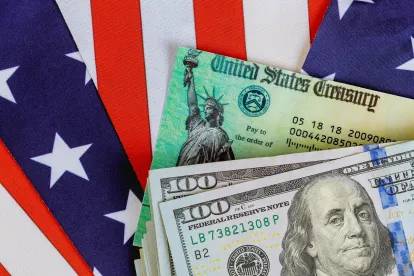Previously, we had suggested to our clients that the IRS was likely to issue extensions to deadlines for affected real estate investors engaging in Internal Revenue Code (IRC) Section 1031 like-kind exchanges in response to challenges in completing such transactions posed by the continuing COVID-19 pandemic. The anticipated relief measures were announced by the IRS on April 9, 2020 in Tax Relief Notice 2020-23, 2020-18 IRB. This notice can be found at: https://www.irs.gov/pub/irs-drop/n-20-23.pdf.
Contained in the last paragraph of Section IIIA of the Tax Relief Notice, the IRS states that taxpayers due to perform an action listed in Revenue Procedure 2018-58 between April 1, 2020 and July 15, 2020 are now categorized as “affected taxpayers” of the COVID-19 pandemic. It is this reference to Rev. Proc. 2018-58 that expands the scope of the Tax Relief Notice to IRC Section 1031 like-kind exchanges as Section 17 of Revenue Procedure 2018-58 contains the references to the 45 day Identification Period and 180 day Exchange Period timelines for successfully completing an IRC Section 1031 like-kind exchange. By virtue of receiving “affected taxpayer” status, a taxpayer whose IRC Section 1031 like-kind exchange saw the last day of the Identification Period or the last day of the Exchange Period fall on a date which is on or after April 1, 2020 and before July 15, 2020 is now granted an extension of either deadline to July 15, 2020 to complete either required action.
A number of questions still surround the application of the IRS Tax Relief Notice. Of important note, Rev. Proc. 2018-58, Section 17(.02) contains a favorable overriding rule that states that an affected taxpayer shall have the longer of the date authorized in the IRS Tax Relief Notice or 120 days from the original due date(s) of the required action to perform any action to comply with the Identification Period or Exchange Period deadlines. However, because of the manner in which the IRS Tax Relief Notice was drafted, it is unclear whether the 120 day provision, if it would extend past the July 15, 2020 date, applies in these circumstances.
Also, the President declared a federal disaster in light of COVID-19 on March 13, 2020 yet the Tax Relief Notice categorizes “affected taxpayers” as those with Section IRC Section 1031 like-kind exchange deadlines falling on or after April 1, 2020 and before July 15, 2020. Will the IRS issue further clarification expanding the scope of the Tax Relief Notice to those taxpayers with deadlines after March 13, 2020, too?
While the Tax Relief Notice clearly applies to a taxpayer whose sale proceeds are in the possession of the qualified intermediary, what of taxpayers whose sale proceeds were distributed back to the taxpayer after a like-kind exchange failed between April 1, 2020 and April 9, 2020, before the taxpayer and qualified intermediary learned of the deadline extensions? Will the IRS permit these taxpayers to re-deposit their sale proceeds in order to benefit from the deadline extensions, with impunity from owing capital gains tax on the sale proceeds that were distributed to them.
Real estate industry organizations have submitted a letter to the Treasury Secretary requesting relief related to some of the foregoing issues as well as for other issues that they believe have unfairly affected taxpayers seeking to utilize like-kind exchanges. We will continue to monitor and provide updates concerning any further notices and developments that may provide clarity on these or related matters.
As a reminder from our earlier advisory on this topic, please do keep in mind that the sale of the relinquished property must have taken place on or before the federal disaster area declaration. Additionally, the exchange agreement between the taxpayer and the qualified intermediary must contain specific language allowing for extensions of the deferred exchange deadlines in the event there are difficulties in complying with the deadlines due to a federally declared disaster or because the taxpayer qualifies as an “affected taxpayer” of the disaster.





 />i
/>i
